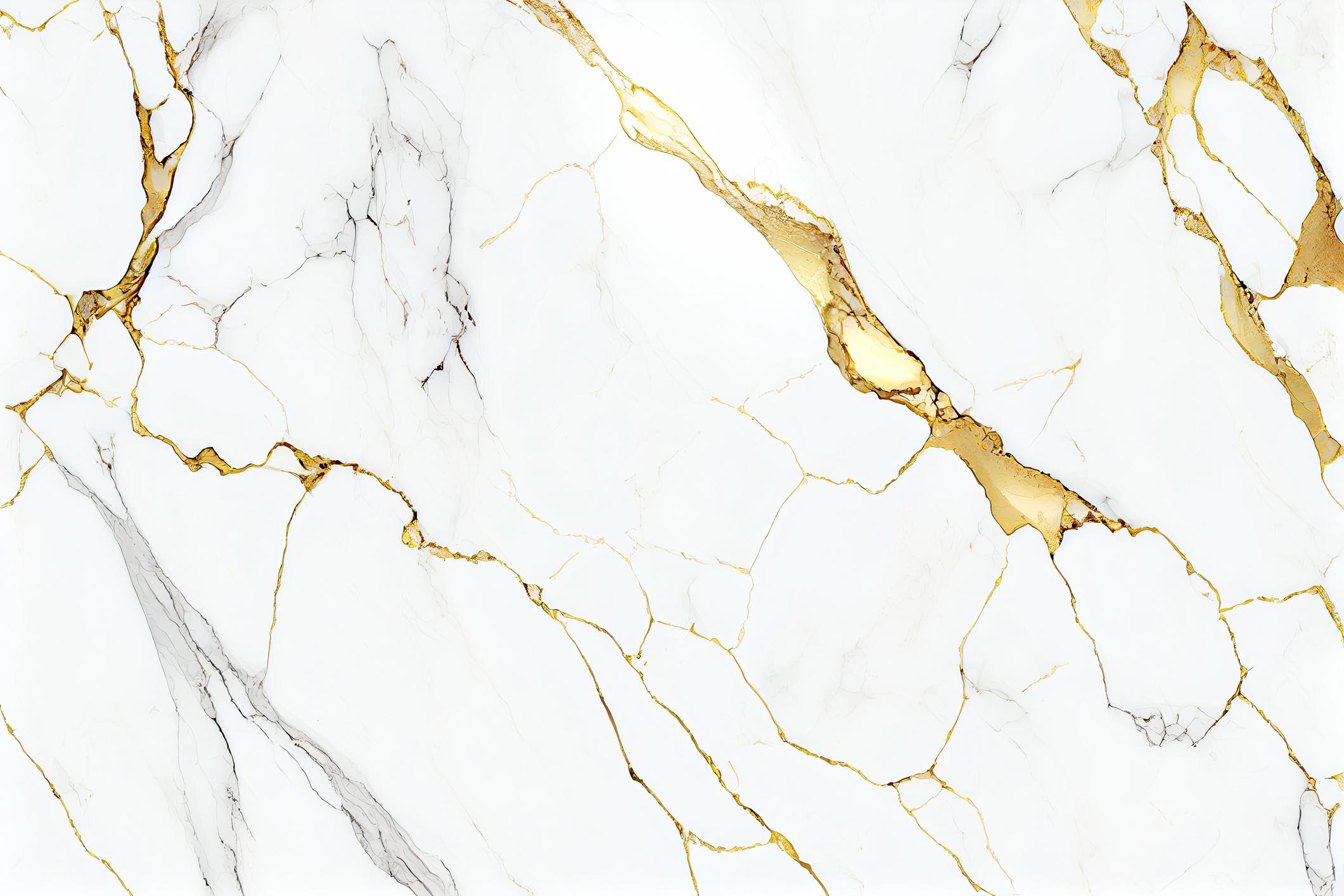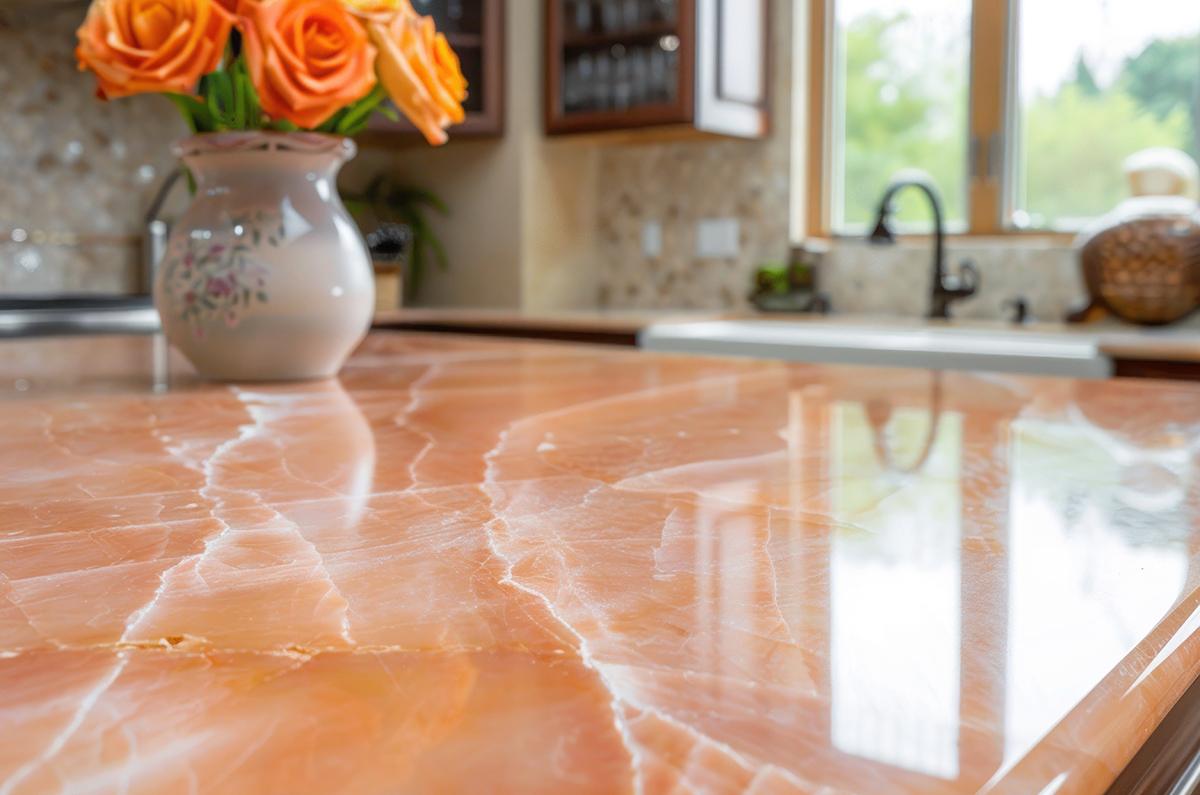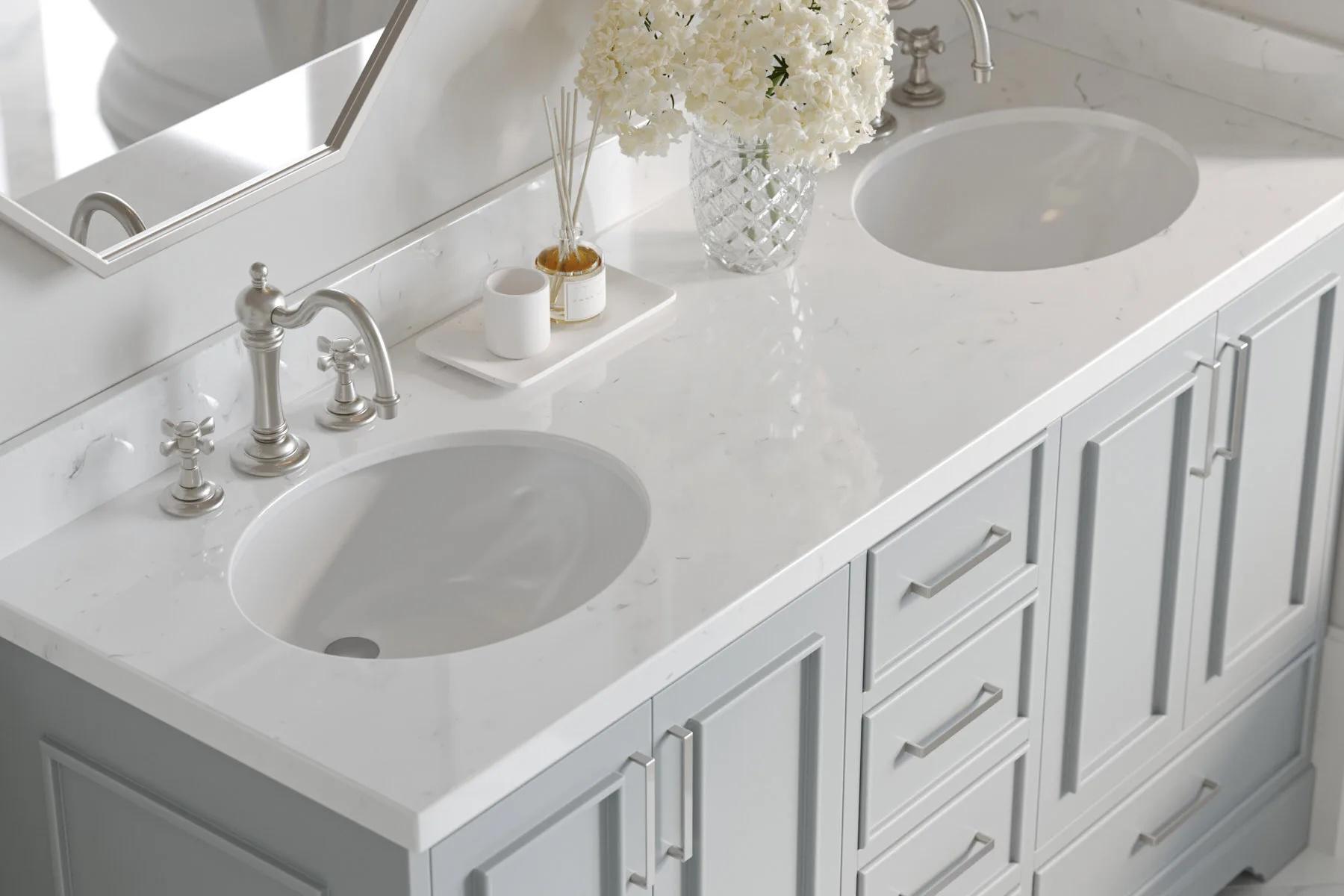


When choosing a countertop material, understanding the differences between quartz and granite can help you make the best decision for your home. While both materials are popular for their durability and aesthetics, they have distinct properties that set them apart. Quartz and granite have different material compositions, appearances and design, durability, maintenance requirements, longevity, vary in cost and value, and much more.
Quartz countertops are widely recognized for their durability, but when it comes to heat resistance, it’s important to understand their limitations. Quartz is engineered by combining natural quartz crystals with resins and other materials. While the natural quartz itself can handle high temperatures, the resin used to bind it is more sensitive to heat.
Quartz can generally withstand normal cooking temperatures. Placing a warm plate or a dish straight from the microwave won’t usually cause problems. However, quartz isn’t as heat-resistant as some natural stones like granite. If you place a hot pot or pan directly onto the surface, the intense heat can scorch the resin, causing discoloration or even cracking.
Quartz is moderately heat-resistant but not heat-proof. Texas Counter Fitters encourages our customers to take basic precautions—like using trivets or pot holders— and you can enjoy the benefits of a beautiful, low-maintenance surface without risking heat damage.
Unlike many natural stones, quartz countertops do not require sealing. Quartz is an engineered material made from natural quartz crystals combined with resins and pigments. The manufacturing process results in a non-porous surface that is naturally resistant to stains, bacteria, and moisture.
The non-porous nature of quartz means there are no microscopic holes where liquids or bacteria can seep in, making it inherently low-maintenance. As a result, quartz does not require sealing or resealing and comes in a wide range of colors. It maintains its resistance to spills, stains, and scratches without any additional treatment.
Quartz is well-known for its durability and resilience, making it a top choice for countertops in busy kitchens and bathrooms. Because it’s engineered by combining 90% ground quartz (a natural hard mineral) with 8-10% resins, polymers, and pigments, the resulting material is extremely hard and long-lasting. The appearance depends on how the quartz is ground: coarsely ground quartz produces a flecked appearance, while finely ground quartz produces a smooth look.
Quartz countertops are designed to be durable, versatile, and long-lasting, but they are primarily intended for indoor use. While quartz offers many benefits, it’s not the ideal material for outdoor installations.
